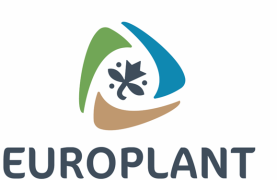Abstract
Exogenic application of β-estradiol as a steroidal hormone stimulates cell division, embryo development, callus growth, and stress tolerance in plants. This experiment was carried out to investigate the effect of β-estradiol on potato salinity tolerance and microtuber production under in vitro conditions. The factors included NaCl and β-estradiol, and these were tested in 10 potato genotypes. The nodal explants from in vitro propagated plantlets were cultured on MS medium with 30 g L−1 sucrose and 8 g L−1 agar supplemented with 0, 50, and 100 mM NaCl. After filter sterilization, β-estradiol was added at 0, 10−12, and 10−6 M. With increasing salt severity, shoot length (SL), plantlet dry weight (PDW), and node number (NN) were significantly decreased, and plantlet Na+ content and Na+/K+ ratio increased. Treatment with 1 pM β-estradiol positively affected the NN, PDW, and root length (RL). However, the magnitude of these effects differed amongst genotypes. The G2, G3, and G4 genotypes showed the highest SL and PDW at all NaCl levels. However, with the increase in salt concentration, a modest alteration (< 14%) in PDW was observed in the G10 genotype. β-estradiol application reduced the Na+ content and Na+/K+ ratio and increased the superoxide dismutase (SOD) activity. Also, microtuberization of potato plantlets on MS medium with 8% sucrose, 10 mg L−1 benzylaminopurine (BAP), 250 mg L−1 chlormequat chloride (CCC), and different β-estradiol concentrations showed that the highest number and weight of microtubers (1.66-fold increase compared with the control) were observed at 1 pM β-estradiol. In all, in vitro application of β-estradiol improved plantlet growth under salt stress conditions and enhanced microtuber production.















